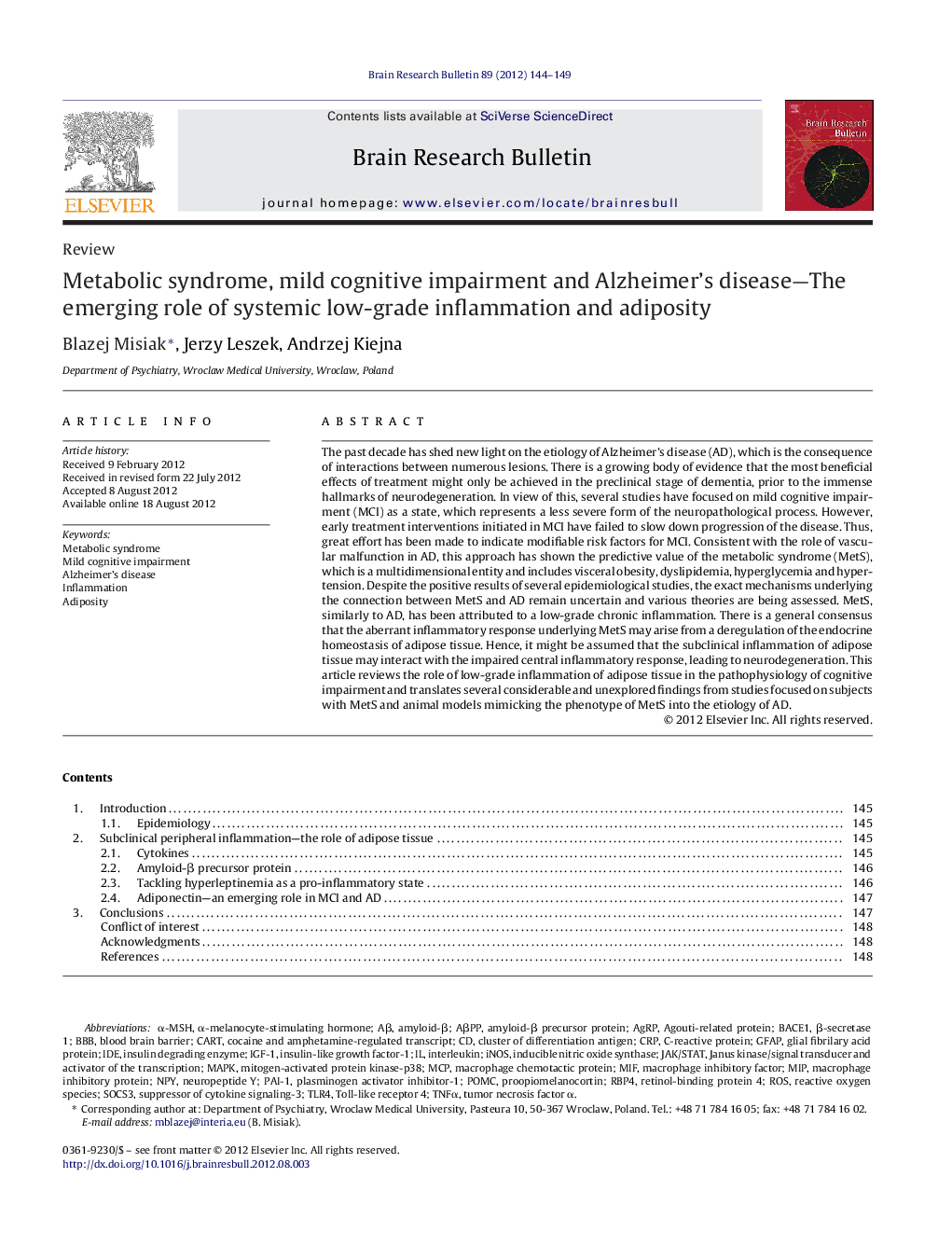| کد مقاله | کد نشریه | سال انتشار | مقاله انگلیسی | نسخه تمام متن |
|---|---|---|---|---|
| 4318971 | 1613267 | 2012 | 6 صفحه PDF | دانلود رایگان |

The past decade has shed new light on the etiology of Alzheimer's disease (AD), which is the consequence of interactions between numerous lesions. There is a growing body of evidence that the most beneficial effects of treatment might only be achieved in the preclinical stage of dementia, prior to the immense hallmarks of neurodegeneration. In view of this, several studies have focused on mild cognitive impairment (MCI) as a state, which represents a less severe form of the neuropathological process. However, early treatment interventions initiated in MCI have failed to slow down progression of the disease. Thus, great effort has been made to indicate modifiable risk factors for MCI. Consistent with the role of vascular malfunction in AD, this approach has shown the predictive value of the metabolic syndrome (MetS), which is a multidimensional entity and includes visceral obesity, dyslipidemia, hyperglycemia and hypertension. Despite the positive results of several epidemiological studies, the exact mechanisms underlying the connection between MetS and AD remain uncertain and various theories are being assessed. MetS, similarly to AD, has been attributed to a low-grade chronic inflammation. There is a general consensus that the aberrant inflammatory response underlying MetS may arise from a deregulation of the endocrine homeostasis of adipose tissue. Hence, it might be assumed that the subclinical inflammation of adipose tissue may interact with the impaired central inflammatory response, leading to neurodegeneration. This article reviews the role of low-grade inflammation of adipose tissue in the pathophysiology of cognitive impairment and translates several considerable and unexplored findings from studies focused on subjects with MetS and animal models mimicking the phenotype of MetS into the etiology of AD.
► Metabolic syndrome serves as a risk factor for Alzheimer's disease.
► Adipose-derived hormones and pro-inflammatory signals contribute to neurodegeneration.
► The role of leptin and adiponectin remains unclear.
► Presented findings indicate the impact of several unexplored adipokines.
Journal: Brain Research Bulletin - Volume 89, Issues 3–4, 1 November 2012, Pages 144–149